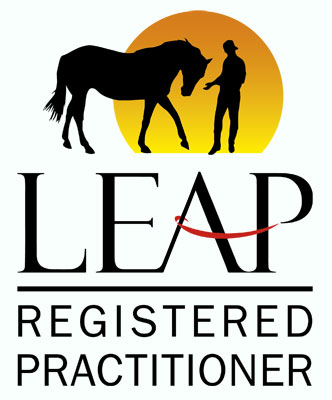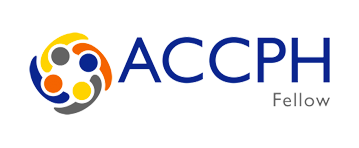
Blog
The Importance of a Safe, Reflective Space for Therapy and Healing.
3 November 2015
Key Themes: "Sacred Space of Possibility"; Vulnerability; Holding Space; Group Facilitations Skills; Group Safety Agreement; Ground Rules; Eponaquest; Empathy; "Repetition Compulsion".
Making one’s self vulnerable, stepping forward and being willing to delve into the darkest parts of yourself, in front of another person or group of people, is a hugely challenging and risky thing for the human psyche to do.
This is why most people avoid this at all costs for most of their lives, and why we develop such ingenious and entrenched coping mechanisms, or defences, as we grow up.
To willingly place ourselves in a therapeutic, learning or spiritually healing space takes enormous courage and, therefore, must not be done lightly; at the wrong time or with the wrong people.
Great care is needed to choose your therapist, coach, teacher, spiritual guide/healer, or facilitator. For example, if you had very domineering parents, the last thing your soul needs to heal is to choose a domineering teacher, therapist or healer. If you choose such a personality then you are carrying out what is referred to as “repetition compulsion”, this is where you repeat a traumatic event or its circumstances over and over again. Inevitably this adds to your original wounding and can keep you stuck in a cycle of non-healing.
I believe that one of the most critical elements in choosing a teacher or therapist to help people move forward in their healing is around how well, or not, that professional can create and hold a safe, reflective and healing space for you and your vulnerability.
If they are not adept and sensitive enough to do this well enough then you could be placing yourself and your soul in great jeopardy, even running the risk of further harm which leads to you reactivating your defences, rather than allowing them to remain down and, therefore, yourself to be open and receptive to healing to take place.
In the course of my own healing journey I have encountered professionals who are both very good at doing this and very poor, in both one-to-one and group situations. I worked with a Jungian therapist for a number of years who was exceptional at holding this space with me, along with very firm but loving boundaries. The space he held enabled me to gradually let down my defences and, therefore, let him enter a shared space of my psyche and history, and because of this I was able to discover and face my deepest woundings for the first time in my life.
In addition, during my time at Eponaquest I also encountered a team of professionals, for the most part, committed to learning and practising this skill. So during my time there I was also able to begin worked through layers of defence and protection and, I slowly began to become more comfortable with the discomfort of being vulnerable in front of other people.
In group settings this is vital. I cannot stress this enough. Professionals leading any form of group, whether this is therapeutic, learning or spiritual, must be able to create and hold a space with completely attentive presence, non-judgment and respect for each member. As well as manage the group's interactions so that everyone feels fully included, held and safe by each other, as well as by the facilitator/s.
I have encountered very poor instances of this on a few occasions, where the facilitator is not willing or able to hold the group safely, and instead allows judgments, disruptions, “fixing” and negative energies to fly around unattended to. Quite quickly I notice myself shut-down and shut my doors when this is the case. I am not able or willing to choose to put myself into a vulnerable position as I need to feel really safe to do this.
Neither is this me being "overly-sensitive". Rather, it is knowing through experience, that my wounded-self cannot risk further pain and trauma. It is also because now I know and believe deeply that there is another, better way where that part of me can indeed feel safe and supported, and so closes down until back in that safe space and community once more.
This is why a set of ground-rules or a safety agreement is so helpful when facilitating groups, especially if there is joint creation and therefore ownership of this agreement between the facilitators and participants. The facilitators can then also keep bring everyone’s attention back to the principles to keep the group members safe, when necessary. At Eponaquest we call this "The Group Safety Agreement", which is based on a series of skills that we can develop to build authentic communities and spaces for growth and healing to take place safely.
Whether working 1-1 or with a group in any sort of therapeutic, learning or healing space it is paramount that the professional can be fully present, calm, grounded and empathetic. It is no coincidence, I think, that this is one of the key reasons that horses can help people so much, as they are naturally adept at all of these skills under the right conditions, i.e. if they are not stressed themselves for any reason.
In his fabulous book Animal-Wise, Ted Andrews gently suggests that we are "cautious about putting ourselves in a vulnerable position. There is a time and a place to do so and it must be chosen carefully.”
Wise words and ones to heed when stepping into a healing space ourselves or expecting our participants to do just that. Choose carefully and if it doesn’t feel safe and supportive then don’t stay. It is perfectly okay to leave and in fact, your soul will thank you for it as it carries on its delicate intricate process of gathering its lost parts and knitting them back together again.
© Angela Dunning, 3 November 2015, up-dated 15 January 2018
Angela offers 1-1 mentoring sessions for equine facilitated/assisted practitioners to hone their skills. These can be via Skype or in-person, with individuals or teams carrying out this work. Find out more here or contact me to discuss further.








